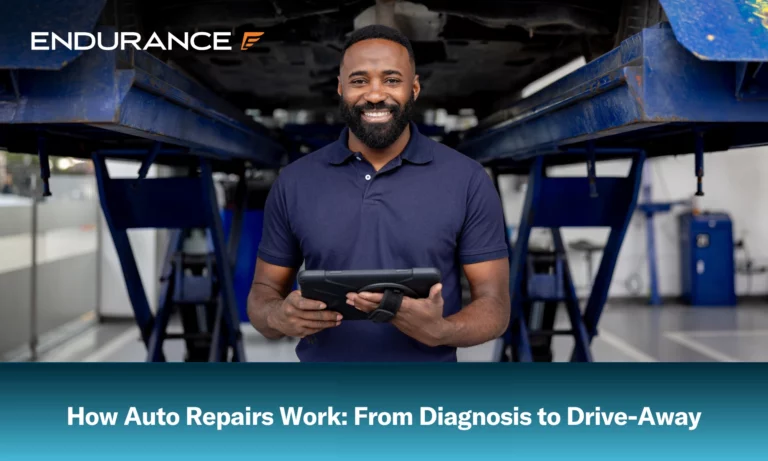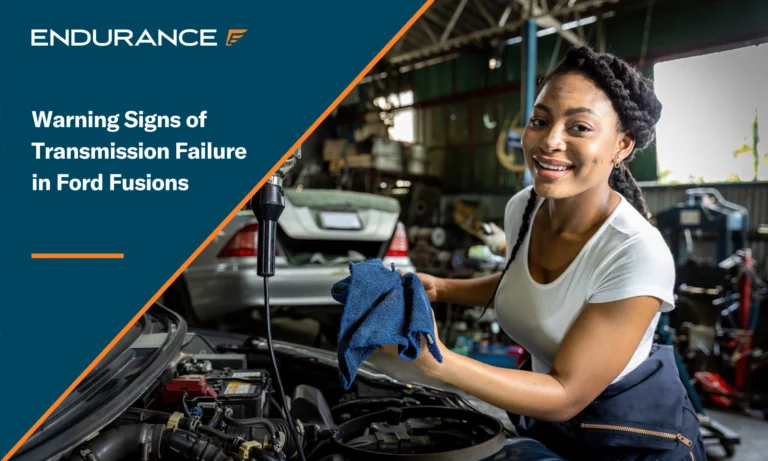Hybrid & Electrical Vehicle Maintenance Costs

Since the first Model T’s began rolling off Ford’s assembly lines in 1908, the automotive industry has seen many advancements throughout the years. From newer, higher-performing engines, high-tech safety features, and the latest and greatest in infotainment — there’s no telling what the next breakthrough may bring. However, while advancements like these can bring about better performing and safer vehicles, there is still the need to stay on top of your car’s essential maintenance needs.
The same holds true when it comes to maintaining a hybrid or electric vehicle, as there are still maintenance procedures that need to be done to help ensure your vehicle stays running properly for longer. In order to better prepare yourself for maintaining your hybrid or electric vehicle, you must understand the types of maintenance costs you can expect with these types of vehicles.
Hybrid Vehicle Maintenance Costs
A hybrid vehicle uses a combination of a traditional internal combustion engine and an electric motor, helping to improve the vehicle’s overall fuel economy. However, while hybrids can help you save at the pump, they will still need to be maintained just like any other vehicle.
Some of the most common maintenance needs of hybrids include:
- Oil Changes — Without engine oil, your car’s engine would be at risk of destroying itself. Because of this, many vehicle manufacturers recommend getting oil changes every 30,000 to 50,000 miles, depending on your driving habits. This will help keep your hybrid’s engine lubricated and running smoothly and will generally cost you between $128 to $142 if you have your oil changed by a certified repair facility.
- Battery Replacement — Similar to a more traditional vehicle, a hybrid’s battery will eventually wear out and need to be replaced, which will usually be around the 80,000 to 100,000-mile mark. However, a hybrid battery is more specialized and complicated than a regular car battery, requiring more money and a professional installation. Because of this, it can cost anywhere between $1,000 and $6,000 to replace.
- Brake Pad Replacement — Having working brakes is essential for any vehicle. Specifically, your brake pads are what helps to stop your wheels from spinning when you apply the brakes. That means without fully functioning brake pads, you could be at risk for a severe accident. To keep your vehicle safe, you should replace your brake pads every 10,000 to 20,000 miles. Whether you have a hybrid, electric car, or traditional vehicle, this will cost between $230 to $274 per brake pad.
- Tire Rotations — As with other wear and tear items, your car’s tires will eventually start to wear and lose tread when driven. However, rotating your tires every 5,000 to 8.000 miles can help ensure your tires last for longer while also helping you to avoid any potential issues such as a tire blowout, which usually costs between $35 and $44.
To keep your hybrid vehicle running smoothly, a vehicle protection plan like EnduranceAdvantage™ can help. Every EnduranceAdvantage package comes with comprehensive breakdown protection for your car’s most vital components, as well as up to $3,500 in regular maintenance coverage. That means you can be sure that your hybrid will stay running efficiently with services such as tire rotations, oil changes, alignment checks, air pressure (PSI) checks, and more included — at no additional cost to you.
Plug-In Hybrid Electric Vehicle Maintenance Costs
Like more traditional hybrids, plug-in hybrids (sometimes referred to as PHEVs) use the same technology to power the vehicle. However, the main difference between PHEVs and standard hybrids can is that PHEVs can be charged by being plugged into an outlet. You also don’t need to install special electrical equipment to charge your plug-in hybrid like you sometimes do for fully electric cars. In fact, many plug-in hybrids can be charged with a standard household outlet in your garage.
However, while plug-in hybrids can help save you in terms of overall maintenance costs or at the gas station, there is the added cost of electricity needed to keep the battery charged. Specifically, the cost of electricity is measured in kilowatt-hours or the amount of energy needed to keep a 1,000-watt piece of equipment running for 1 hour. This will average to be about $0.13 per kilowatt-hour, meaning a 66 kWh battery like the ones in many plug-in hybrids would cost owners around $9 of electricity to charge completely.
Electric Vehicle Maintenance Costs
Fully electric vehicles (EVs) have much lower maintenance costs than hybrids or plug-in hybrids. In fact, EV owners can expect only to pay around $900 per year to maintain their vehicle instead of the $1,200 a year it takes to maintain a traditional vehicle or hybrid. This is due to the lack of the moving parts or combustion elements present in a traditional gas-powered engine.
The most significant maintenance expense with an EV is going to be a battery replacement. Because electric vehicles use an incredibly complex battery, it will be even more expensive to replace than a hybrid or plug-in hybrid battery, costing owners between $6,000 to $9,000, though some vehicles can cost even higher depending on their make/model. However, while they are more expensive to maintain or replace, batteries in EVs are meant to last between 8 and 10 years, meaning a single replacement should be able to last you for years to come if properly maintained. Electric vehicles can also be eligible for a federal EV tax credit, which can be worth up to $7,500 and can help offset the cost of a battery replacement.
Signs Your Hybrid or Electric Vehicle Needs Servicing
Like any other type of car, truck, or SUV, there are several signs you can look out for to tell if your hybrid or electric vehicle needs to be serviced. One of the most tell-tale signs of an issue is the vehicle not holding a charge. This could either mean that your charging mechanism isn’t working or that it is time to replace the battery.
Additionally, if you notice that your brakes are squeaking or feel spongy, this could be a sign that you need new brake pads. You may also notice that the vehicle vibrates when you press on the brake pedal, or if you notice vibrations when you go around a turn, this could mean that you need to get your steering alignment checked.
Protect Your Hybrid or Electric Vehicle With Endurance
Whether you own a hybrid, a plug-in hybrid, an EV, or a traditional internal combustion engine, staying up-to-date on routine maintenance is vital. With an auto protection plan like EnduranceAdvantage, you can rest easy knowing you’re covered for up to $3,500 of regular maintenance coverages, including oil changes, tire rotations, alignment checks, and more. Additionally, each EnduranceAdvantage package comes with special, one-time maintenance services such as a front or rear wiper blade set replacement, a brake and shoe pad replacement, and more, providing even more coverage and savings.
Endurance customers will also receive 1 year of Elite Benefits with the purchase of any auto protection plan. With additional perks like 2 tire repairs or replacements per year, 24/7 roadside assistance, up to $1,000 in total loss protection, and more, you can drive confidently knowing Endurance has you covered.
For more details about Endurance auto protection plans, request a free, no-obligation quote or call 866.918.1438 to speak directly with a customer service representative. You can also visit our Learning Center for more informative articles ranging from auto expert make/model comparisons, extended warranties, answers to common questions, and more.













As both an Army Veteran & ASE Certified repair shop owner, Andrew has made educating the modern driver an ongoing mission since the opening of his repair shop, Midwest City Autospa, in 2012. Read more about Andrew.